#The Social Dilemma and Vulnerability
Text
Common misfortunes for characters
Death of a loved one: This can be a profound and devastating experience for a character, leading to grief, guilt, and a sense of loss. It can also serve as a catalyst for character development and exploration of themes such as mortality, coping with loss, and the fragility of life.
Serious illness or injury: Physical or mental health challenges can test a character's resilience and force them to confront their limitations. It can also provide opportunities for exploring themes of perseverance, the importance of support systems, and the fragility of the human body.
Loss of a job or financial ruin: Financial struggles can lead to desperation, uncertainty, and a loss of identity for a character. It can also present opportunities for growth, reinvention, and exploring themes of resilience, resourcefulness, and the true value of material possessions.
Betrayal by a trusted friend or ally: Betrayal can shatter trust and lead to feelings of anger, betrayal, and a loss of faith in others. It can create complex moral dilemmas for the character and explore themes of loyalty, forgiveness, and the dark side of human nature.
Imprisonment or wrongful accusation: Being imprisoned or falsely accused can lead to feelings of powerlessness, injustice, and a struggle for redemption. It provides opportunities for exploring themes of justice, personal agency, and the lengths one will go to prove their innocence.
Natural disasters: Natural disasters can be catastrophic events that disrupt lives, challenge survival instincts, and test a character's resilience. They can explore themes of human vulnerability, the power of nature, and the strength of community in times of crisis.
War or conflict: War and conflict can have profound impacts on characters, leading to physical and emotional trauma, loss of loved ones, and moral dilemmas. They provide opportunities for exploring themes of heroism, sacrifice, the futility of violence, and the long-lasting effects of war.
Addiction or substance abuse: Characters grappling with addiction or substance abuse can experience a downward spiral, strained relationships, and a loss of control. It allows for exploration of themes such as self-destructive behavior, the road to recovery, and the impact of addiction on oneself and others.
Mental health issues: Characters dealing with mental health issues like depression or anxiety can face internal struggles, isolation, and difficulties in functioning. It provides an opportunity to delve into themes of stigma, self-discovery, and the importance of mental health support.
Loss of a child or miscarriage: The loss of a child or experiencing a miscarriage can be emotionally devastating for characters, leading to grief, guilt, and questioning of one's purpose or identity. It allows for exploration of themes of parental love, coping with loss, and the complexities of grief.
Failed relationships or divorce: Characters going through failed relationships or divorce can experience heartbreak, loneliness, and a sense of failure. It presents an opportunity to explore themes of love, forgiveness, personal growth, and the complexities of human relationships.
Alienation or social isolation: Characters who feel alienated or socially isolated can grapple with feelings of loneliness, rejection, and a sense of not belonging. It allows for exploration of themes of identity, acceptance, and the importance of human connection.
Identity theft or fraud: Characters who fall victim to identity theft or fraud can face financial ruin, loss of reputation, and a struggle to reclaim their identity. It provides opportunities to delve into themes of trust, deception, and the lengths one goes to protect their identity.
Accidental injury or disability: Characters experiencing accidental injury or acquiring a disability can face physical and emotional challenges, adjusting to a new way of life, and overcoming societal barriers. It allows for exploration of themes such as resilience, self-acceptance, and the meaning of true strength.
Loss of a treasured possession or heirloom: Losing a treasured possession or heirloom can evoke feelings of loss, nostalgia, and a connection to the past. It provides an opportunity to explore themes of materialism, attachment, and the value of intangible memories.
Being stranded or lost in a remote or dangerous location: Characters finding themselves stranded or lost in a remote or dangerous location can face survival challenges, fear, and the need to rely on their instincts. It allows for exploration of themes of resilience, self-discovery, and the inherent strength of the human spirit.
Struggling with poverty or homelessness: Characters experiencing poverty or homelessness can encounter hardships, discrimination, and a constant struggle for basic needs. It provides an opportunity to explore themes of social inequality, resilience, and the power of compassion and empathy.
Encounter with a dangerous or malicious antagonist: Characters facing a dangerous or malicious antagonist can be subjected to physical and psychological harm, manipulation, and a fight for their lives. It allows for exploration of themes of good versus evil, moral choices, and the strength of the human spirit in the face of adversity.
Political or social persecution: Characters experiencing political or social persecution can face oppression, injustice, and the fight for their rights and freedom. It provides an opportunity to explore themes of social change, courage, and the power of collective action.
Being framed for a crime they didn't commit: Characters who are framed for a crime they didn't commit can face wrongful accusation, a loss of trust, and the pursuit of justice. It allows for exploration of themes of innocence, perseverance, and the search for truth.
These misfortunes can be used individually or combined to create layered and complex narratives where characters face adversity, overcome challenges, and ultimately find strength and growth through their experiences. Remember to balance the misfortunes with moments of resilience, hope, and eventual triumph to create a compelling narrative.
If you want to read more posts about writing, please click here and give me a follow!
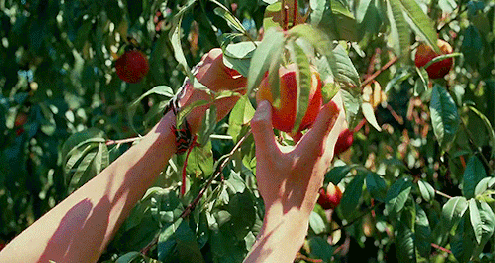
#creative writing#writing#writeblr#writerscommunity#writer things#writers#writersociety#on writing#writblr#writers on tumblr#write#writers block#writers and poets#female writers#ao3 writer#amwriting#authors#writing community#writer#writing advice#writing asks#writing a book#advice#resources
3K notes
·
View notes
Text
Unleash Your Inner Vampire: Tips for Writing Vampire
1. Study Vampire Legends and Lore: Immerse yourself in vampire mythology and folklore from various cultures. Familiarize yourself with popular vampire tales, historical references, and the diverse interpretations of these immortal creatures.
2. Immortality and Eternal Life: Explore the themes of immortality, longevity, and the consequences that come with eternal life. Delve into the existential questions, moral dilemmas, and emotional complexities that arise from living through the ages.
3. Supernatural Abilities and Weaknesses: Define the unique set of supernatural abilities and weaknesses your vampires possess. Consider powers such as superhuman strength, speed, heightened senses, and the need for blood as sustenance. Establish the vulnerabilities, such as sunlight, garlic, holy symbols, or wooden stakes, that can be used against them.
4. Bloodlust and Temptation: Portray the powerful and primal urge vampires have for blood. Describe the inner struggle to maintain control, resist temptation, and reconcile their predatory nature with their humanity. Explore the psychological and moral conflicts that arise from their insatiable thirst.
5. Immortal Society and Clans: Create a complex social structure and hierarchy within the vampire community. Develop vampire clans or covens, each with their own traditions, rules, and relationships. Explore the dynamics between older, more influential vampires and newly turned ones.
6. Nighttime Environments and Atmosphere: Craft a vivid portrayal of the vampire's nocturnal world. Describe the allure of moonlit nights, mysterious gothic settings, and the ethereal beauty that accompanies their existence in the shadows.
7. Vampire Origins and Transformations: Establish the origins and methods of vampiric transformation in your story. Explore the lore behind their creation, whether through a bite, a curse, or a supernatural event. Consider the physical and emotional changes that occur during the transformation process.
8. Hunting and Feeding Rituals: Delve into the rituals and methods vampires employ when hunting for blood. Describe their seductive charm, mesmerizing allure, and the art of choosing and mesmerizing their prey. Showcase the duality of violence and sensuality that accompanies their feeding.
9. Humanity and Redemption: Allow your vampire characters to grapple with their lost humanity and the possibility of redemption. Explore their desires to reconnect with their past, form meaningful relationships, or find purpose beyond their existence as predators.
10. Vampire Hunters and Threats: Introduce conflicts and adversaries that challenge your vampires' existence. Include vampire hunters, rival factions, or other supernatural creatures that pose a threat to their secrecy and survival.
Remember to infuse your writing with atmospheric descriptions, emotional depth, and explore the complexities of the vampire's existence. Let your imagination soar as you delve into the captivating world of vampires.
#vampire#vampire prompts#vampire oc#vampire original character#vampire writing#writing#writing tips#character development#writer on tumblr#writerscommunity#writer tumblr#writblr#writing advice#oc character
563 notes
·
View notes
Text
okay, so. you can't ship something ironically. or I mean ... you can, but "shipping something ironically" is one possible first step to shipping it sincerely. eventually you Just Ship It. anyway I'm kind of speedrunning this process with Sonadow
but I don't ship Sonadow as "cute boyfriends snuggling", i'm not going to write them dancing or whatever (at least, they wouldn't be dancing for very long before Shenanigans and/or Drama happened). apart from anything else I'm slightly too lesbian. but I ship Sonadow as in "rivals (romantic)". I ship it as in "two guys who are walking disasters in equal and opposite ways who somehow complement each other instead of Driving Each Other Up The Wall, and it's only occasionally 'instead of'." They're like "the Ultimate Life Form (derogatory) with zero social skills because he was raised in space" x "just a guy who loves adventure and has infinite patience for people", but also "the Ultimate Life Form (positive) with infinite patience for situations" x "Just Some Guy with no ability to focus". Sonic is one of the only people to whom Shadow feels like he can show his vulnerable side; he won't, but he totally could if he wanted, no really. @fettiowi's post that was like "sonadow dynamic: if they went to Twinkle Park they'd still have to pay." The Hedgehog's Dilemma (the hedgehog in question is black with red kabuki streaks).
#shenanigans#philosophy#shipping#sonic#sonic the hedgehog#shadow the hedgehog#sonadow#mlm#rivals#oh my god they were rivals
89 notes
·
View notes
Text
Fixing & Empathy
This is a long one- and of course, I'm talking about the table scene. But it's such a great example here.
How Carmy connects with Syd and Claire shows the difference between Empathy and Fixing. Fixing is our instinct when our partner is in feelings of discomfort; we sympathize and try to see the silver lining for this person; we want to solve their problems instead of sitting in pain with our partner. Empathy, you're showing someone you care and understand; it's finding something within you to connect to the other person. This is the art of vulnerability.
Fixing
Claire: When we were, like, six, she, uh, fell off a fence and broke her arm, and it scared the sh¡t out of everybody? Except me, I just, like, sat there and stared at her arm.
Carmy: 'Cause you wanted to fix it?
Claire: I wanted to understand it.
Carmy: Right.
This has become my favorite interaction of the Claire & Carmy storyline. It's the summary of their relationship, a foreshadowing, if you will.
If I fill in the blanks, she is a fixer, at least in romantic relationships. I know Molly said with Carmy it's the first time Claire has stood up for herself. Maybe that's what she means: Claire wants to fix her partners; she's an enabler, as @moodyeucalyptus said. Enabling is when someone else will always fix, solve, or make the consequences disappear, and I noticed this dynamic in 2x08.
2x08: She listens to his problems and reminds him that everything is fine the night after his panic attack. When Claire asks Carmy what he's thinking about. He can't be honest that he's still thinking about the suppression test because she will attempt to fix it. He does not trust her with his feelings of discomfort. The fixing Claire does is futile support.
The way she attempts to fix Carmy, we hear through Carmy himself. A panic attack about his family gatherings - Claire's solution is finding a new meaning, making the cannolis your own. chaos menu? Could you try making it something you care about?
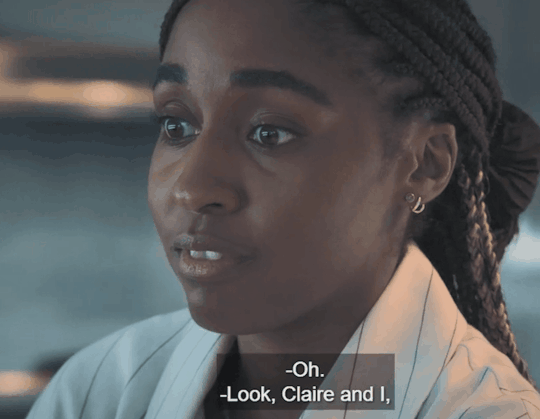
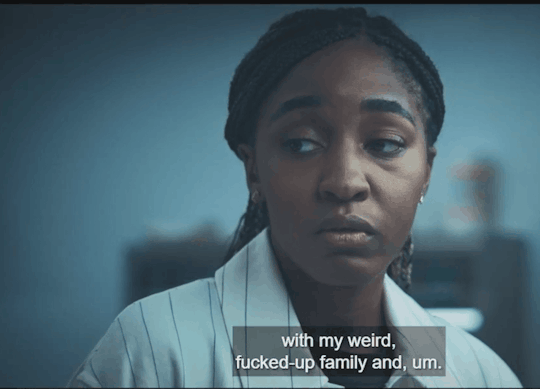
Can she truly understand and connect with what he's feeling? Carmy not defining their relationship could mean the lack of a bond on Carmy's part.
Part of the solution to Carmy's dilemmas on the show lies in connecting - moving out of the constant state of isolation.
Connection improves Carmy; when he initiates contact, he becomes a better version of himself. He stops screaming, gets out of his head, and can provide for others and inspire them.
All the above matches what he does for Tina, Richie, Marcus, Ebrahim, and most of all, Sydney.
It's like what Luca says in 2x04- being inspired by someone, bettering ourselves because of the person next to us- and really getting out there in the world means opening ourselves up to other people, which is what Carmy and Syd do for each other- they use empathy as a source of bonding.
Blocking was talked about for their scenes before, how one always initiates closeness- Carmy usually does that, especially in season 2. That need for contact - touching Syd on her back and shoulders - shows Carmy's longing for closeness with Sydney.


Before I get to empathy, Here's the thing: I know people hate to say that Carmy relies on Sydney or that she's his peace argument, but this does not mean Sydney actively tries to fix Carmy. Just Sydney's presence ignites change in him; just by her honesty, he's willing to try and be there for someone and get out of that place where he's hiding within himself. Sometimes, it's forgotten that social isolation can impact our mental health, and bonding with others can make positive changes.
Empathy
"...empathy is kind of this sacred space. When someone's kind of in a deep hole, and they shout out from the bottom, and they say hey it's dark, I'm overwhelmed, and then we look, and we say, "Hey," we come down."I know what it's like down here, and you're not alone."
-Brene Brown

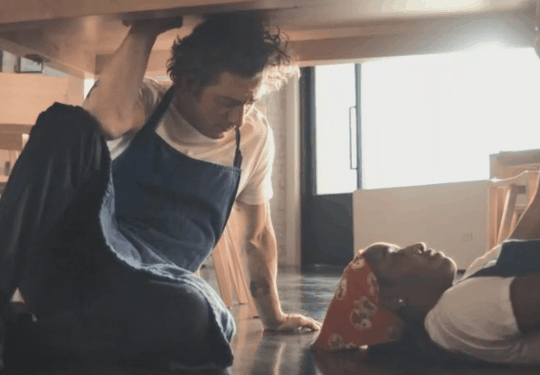

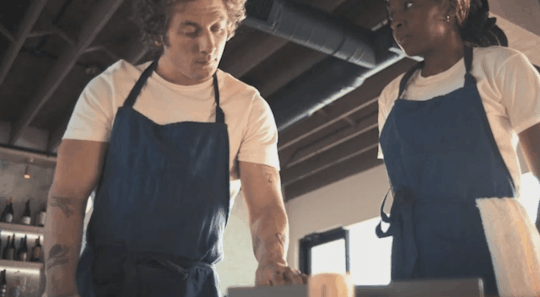
I talked about the table scene fifty-eleven times. It makes a great example of the connection Carmy feels to Sydney.
When we're with people - our person - they make us want to be better. We don't fear a future; we expect a future with this person. There's this knowing Carmy has about Sydney; he knows whatever this relationship is, they'll work on it.
Carmy & Sydney show us the correct way to deal with your partner's feelings is empathy- listening to one another, instead of correcting emotions- you get in the hole- or table with them and express your own fears. He leaves space for Sydney to share her concerns and doesn't try to correct those feelings. He affirms and tells her he's right there with her (I fuck things up all the time), and he's honest- the without-you dialogue isn't just to make her feel better. It's his own moment of vulnerability.
When Carmy says I won't let you, I think he will hold his side and make it easier so they can fix themselves. All while empathizing with each other during their partnership.
Writing this makes the scene of the walk-in even more heartbreaking. Carmy was in the dark hole- calling for Sydney to bond with him; they couldn't help each other :(.
This is why I can't blame Carmy for screaming at Richie; he sort of begged Richie for empathy, but Richie judged him- causing panic at that moment and more isolation.
Though the end of season two was heartbreaking, I have faith we'll get more intimate, empathetic scenes despite the fall in season two.
This is a roundabout way to say- whether they end up together romantically or not (they will i just say this for the sycarmy doubters), Carmy pretty much confirms his bond with Sydney is unlike any other he's experienced, and no one can replace what he feels for her- even if someone is sitting at their table.
SIDEBAR: Read this insightful post by @bioloyg about Carmy fixing himself.
I've referenced Brene Brown's Empathy Vs. Sympathy
#the bear meta#sydcarmy#the bear fx#anticlaire#carmy x sydney#carmy berzatto#carmen berzatto#sydney x carmy#chefs kiss#i think the sydcarmy tag is frozen
81 notes
·
View notes
Text
في عبارات تثير التفكير في معضلة الحياة المعاصرة يقول امبرتو ايكو:"الحياة الأن لا يحكمها مفهوم الحق والباطل و لا مفهوم الأخلاق والمبادئ والمثل العليا، الحياة يحكمها مفهوم القوة والضعف، الذكاء والغباء،، التكيف أو الاندثار، فحقك لابد أن تأخذه بالقوة والذكاء والتكيف مع الواقع،، فقد تطورنا عبر ملايين السنين من كائنات تفترس بعضها البعض مادياً إلى كائنات تفترس بعضها مادياً ومعنوياً ونفسياً وحقوقياً أيضاً ".
يبدو أن الحياة المعاصرة تثير الكثير من التساؤلات حول مفهوم الحق والباطل، والأخلاق والقيم. في العصر الحالي، تتداخل القوة والضعف بشكل كبير في الحياة اليومية وفي التفاعلات الاجتماعية والسياسية. ومن الملاحظ أن الفهم القديم للأخلاق والمثل العليا قد تغير بشكل كبير. لكن ما زالت القيم والمبادئ العليا تلعب دوراً مهما في تشكيل تصرفات الأفراد والمجتمعات.
تبدو القوة والضعف أحد العوامل الرئيسية التي تؤثر على حياة الإنسان في العصر الحالي. فالقوة يمكن أن تكون وسيلة لتحقيق الأهداف والدفاع عن الحقوق والمصالح، بينما الضعف قد يجعل الإنسان عرضة للاستغلال والظلم. وعلى الرغم من ذلك، فإن القدرات الفكرية والعاطفية والروحية يمكن أن تلعب دوراً هاماً في تعويض أو تحويل الضعف إلى نقطة قوة.
تطورت البشرية بشكل كبير على مدى العصور، وتغيرت القوى التي تحكم العالم. من الواضح أن الثورات الصناعية والتكنولوجية قد أحدثت تحولاً جذرياً في كيفية تفاعل الإنسان مع العالم. وفي ظل هذه التغيرات، تزداد أهمية فهم القوة والضعف وكيفية التعامل معهما بشكل إيجابي ومسؤول.
من الناحية الأخرى، فإن الأخلاق والقيم تظل مرجعاً هاماً في توجيه سلوك الإنسان وتشكيل تفاعلاته مع الآخرين. فالعدالة والنزاهة والرحمة والشجاعة والصدق هي قيم تسهم في بناء مجتمعات قوية وصحية. وفي هذا السياق، يُشجّع الفرد على استخدام قوته بشكل مسؤول وعلى تحويل الضعف إلى نقطة تفوق من خلال تطوير القدرات الشخصية والاستفادة من الدعم والتعاون مع الآخرين.
من المهم أيضاً أن نتذكر أن القدرة على فهم القوة والضعف ليست خاصة بالأفراد فحسب، بل تمتد إلى الأنظمة السياسية والاجتماعية. فالتوازن بين القوة والعدالة يشكل التحدي الرئيسي للمجتمعات الحديثة. يتطلب ذلك إقامة نظم قانونية واجتماعية تحفظ حقوق الجميع وتحد من سوء استخدام القوة.
لذلك، من المهم بذل الجهود لتعزيز الوعي بأهمية فهم القوة والضعف وتأثيرهما على الحياة اليومية. يجب أن نعمل على بناء مجتمع يقوم على القيم الإنسانية الأصيلة ويعزز التوازن والعدالة. إن الاستفادة من القوة بطريقة مسؤولة ومنصفة، وتحويل الضعف إلى نقطة تفوق، تعدان تحديين هامين يواجهان الإنسانية في العصر الحديث.
باختصار، يمكن القول إن فهم القوة والضعف وتأثيرهما على الحياة والمجتمعات يجب أن يكون جزءًا من التفكير والتحليل في العصر الحالي. يجب علينا أن ننشر الوعي بأهمية فهم تلك العوامل والعمل على بناء مجتمعات تعتمد على العدالة والمساواة والتفاهم.
In thought-provoking statements regarding the contemporary dilemma of life, Umberto Eco states: "Today, life is not governed by the concept of right and wrong, nor by the concepts of ethics, principles, and higher ideals. Life is governed by the concept of power and weakness, intelligence and foolishness, adaptation or disappearance. You must assert your rights through power, intelligence, and adapting to reality, for we have evolved over millions of years from creatures that preyed on each other materialistically to creatures that prey on each other materially, morally, spiritually, and politically as well."
It seems that modern life raises many questions about the concept of right and wrong, ethics, and values. In the present age, power and weakness intertwine significantly in daily life and in social and political interactions. It is evident that the traditional understanding of ethics and higher ideals has undergone significant change. However, values and higher principles still play an important role in shaping the behavior of individuals and communities.
Power and weakness appear to be among the primary factors influencing human life in the present age. Power can be a means to achieve goals and defend rights and interests, whereas weakness may make a person vulnerable to exploitation and injustice. Nevertheless, intellectual, emotional, and spiritual capabilities can compensate for or transform weakness into a point of strength.
Humanity has evolved significantly over the ages, and the forces governing the world have changed. It is evident that industrial and technological revolutions have brought about a radical shift in how humans interact with the world. In the midst of these changes, it becomes increasingly important to understand power and weakness and how to deal with them positively and responsibly.
On the other hand, ethics and values remain an important reference in guiding human behavior and shaping interactions with others. Justice, integrity, compassion, courage, and honesty are values that contribute to building strong and healthy societies. In this context, individuals are encouraged to use their power responsibly and to transform weakness into a point of advantage by developing personal abilities and benefiting from support and cooperation with others.
It is also important to remember that the ability to understand power and weakness is not exclusive to individuals but extends to political and social systems as well. The balance between power and justice represents the major challenge for modern societies. This requires the establishment of legal and social systems that safeguard everyone's rights and limit the abuse of power.
Therefore, efforts should be made to enhance awareness of the importance of understanding power and weakness and their impact on daily life. We must work towards building societies based on authentic human values that promote balance and justice. Utilizing power in a responsible and fair manner and turning weakness into an advantage are two significant challenges facing humanity in the modern age.
In summary, understanding the impact of power and weakness on life and societies should be a part of current thinking and analysis. It is crucial to spread awareness about the importance of understanding these factors and to work towards building societies based on justice, equality, and understanding.
24 notes
·
View notes
Note
001 about Campi / Andi 👁✨👁
When I saw Lera sent me an ask, I just KNEW you were going to follow along XD
THANK YOU SO MUCH FOR THE ASK AS WELL !
You guys have no idea how happy these make me !
About Andi and Campi...
When I started shipping if I did : Once again, I have no idea...
I am really bad at remembering dates and moments, so I have no idea WHEN I started shipping it, but the ship grew on me when I saw you and Lera write so many fics and do so many memes and edits about them. It's really a ship that means a lot to me thanks to all the things you two made !
My thoughts : I LOVE THEM SO MUCH TOGETHER
And I don't say it in an hypocrite way, it's really a ship that grew on me and became really important to me, because I absolutely admire your art and consistency when it comes to create things about them. What I love most is the way you portray them (and when I say you, I mean both you and Lera), the focus on their younger years is a perfect frame for depicting all the tentative attempts at intimacy and relationships, and I love reading about that, about men discovering themselves and each other, and I find it extremely empowering as a gay man. I love your art, and I will NEVER grow tired of telling you so !
What makes me happy about them : Everything !
Andi and Campi are two of my favorite people ever, and I absolutely love the idea of them being together. I associate their relationship to the 80's, for some reason, and it means a shit load to me to see young men being all shy and vulnerable with each other, hopelessly in love and ashamed of it, but they can't help it and at the same time, it's the worst feeling of their lives. That dilemma of "I love him, but I'm not gay, it's not gay to make out with your bestie and I hate him, but I love the way he makes me feel". I wish I could elaborate on these feelings and moments as well as you both do, to be honest. My writing jam is old men being in love, but I would sell my soul to keep reading about young men in love all day every day. I like it, that difference between me and you. I focus on the old men, you focus on the young men, it's perfectly balanced 😌😌😌😌
What makes me sad about them : It's gonna sound hypocritical, but...
I NEED MORE. ALWAYS MORE. AND I'M SAD THAT THERE ISN'T MORE
(But Sid, you don't write yourself, and you take 1.000 years to write comments. I know, I'm SO sorry about that, but I just love this ship so much that I can't get enough of it, and I'm sorry for taking so much time to write comments ToT)
Things done in fanfics that annoys me : I don't think there is any?
Like I wouldn't read fanfics with tropes that I don't like, so I don't have things that annoy me in the fanfics I read about them?
Things I look for in fanfic : THE SHYNESS
YES TO MEN BEING VULNERABLE AND NOT KNOWING HOW TO DO THINGS AS IF THEY WERE MASTERMINDS IN SOCIAL RELATIONS AND INTERACTIONS. YES TO MEN ASKING FOR HELP. YES TO MEN BEING UNSURE ABOUT THEIR FEELINGS AND STILL FINDING SOLACE IN ANOTHER'S EMBRACE. AND YES TO MEN WORKING IN THE SAME BAND AND DATING AT THE SAME TIME AND FUCKING OVER THE WHOLE BAND'S DYNAMIC AND THE BAND BEING THEIR THIRD WHEEL BECAUSE THEY ARE INCAPABLE OF SEEING HOW MUCH THE OTHER LOVES THEM.
I really do like the trope of the Hosen just third wheeling Andi and Campi because they are convinced the other doesn't love them back and they all are like "CAN YOU KISS ALREADY????" XD
Who I'd be comfortable them ending up with, if not each other :
Andi -> Kuddel, Vom
Campino -> Vom
(How surprising is this answer? XD)
My happily ever after for them : Them being boyfriends
Somehow, their relationship is more Punk than Campi/Vom (even more surprising when you know that Vom is my Punk model XD) and I feel like they wouldn't be into marriage just as much, so my happily ever after for them would be them dating and being boyfriends, being faithfully committed to each other for the rest of their lives, growing old and grey by each other's side. I love the idea of them being partners in life, for life, and in crime XD
Who is the big/little spoon : I see Campi as the big spoon
But I think Andi can also be the big spoon when he feels like being in charge. I think Andi loves being cuddled the most, and Campi has more reserve about it, he doesn't really like being shown affection (but loves to give it to others) so he would end up cuddling Andi much more, and Andi would give it back to him in the rare moments when Campi feels more vulnerable and open to affection !
What is their favorite non-sexual activity : Literally sleeping together.
As in sleeping. Literal sleeping. Big old 😴😴😴😴
I think what they love doing the most in a day is taking their mutual nap together. Sleeping in each other arms (in the infamous sleeping position I described in an imagine post XD) If they are not sleeping, they can spend a long time just talking to each other in bed at night. Sometimes, they would even excuse themselves to their bandmates and "go to sleep" earlier than usual just to be alone together and talk about things while in bed. Campi would talk the most, but not about deeply personal things. Andi would listen the most, but wouldn't be afraid of getting personal when in the mood.
ONCE AGAIN, THANK YOU SO MUCH FOR SENDING THE ASK !!!!!!
I had lots of fun answering these questions about these two rascals who own my heart ❤❤❤❤
6 notes
·
View notes
Text

Resident Evil Outbreak for the PlayStation 2 explores the philosophical themes of existential isolation, the human condition in crises, community versus individualism, and the nature of fear and despair. The diverse array of characters, including a waitress, a police officer, and a doctor, each with their unique perspectives and moral dilemmas, offers a canvas to analyze these themes using philosophical perspectives from thinkers like Thomas Hobbes, Søren Kierkegaard, Emmanuel Levinas, and Michel Foucault.
1. Hobbesian State of Nature and Survival: Thomas Hobbes’s notion of the 'state of nature' as a life that is "solitary, poor, nasty, brutish, and short" aptly describes the chaotic world of "Resident Evil Outbreak." In this game, the breakdown of societal structures due to the zombie apocalypse forces characters into a survival mode reminiscent of Hobbes’s description of human life without societal rules and protections. This setting allows an exploration of Hobbes’s idea that in such a state, individuals have a natural right to do anything in their power to preserve their lives. The decisions made by characters, like the police officer Kevin Ryman, reflect the complex interplay between self-preservation and the maintenance of moral and social order in a lawless environment.
2. Kierkegaardian Existential Despair and Fear: Søren Kierkegaard’s exploration of existential despair and fear provides a profound lens to view the psychological states of the characters in "Resident Evil Outbreak." Kierkegaard believed that confronting despair was essential to achieving a higher state of existence. In the game, characters like the doctor George Hamilton face not only external threats but also internal existential crises. Their fear of the unknown and the inevitability of death challenges them to find meaning or resign themselves to despair, embodying Kierkegaard’s stages of existential development: the aesthetic, the ethical, and the religious.
3. Levinasian Ethics and the Other: Emmanuel Levinas’s ethics, centered on the primacy of the Other and the ethical responsibility to another, are crucial in a cooperative multiplayer game like "Resident Evil Outbreak." Each character must decide whether to prioritize personal survival or assist others, such as helping Cindy Lennox, the waitress, who often needs protection. Levinasian philosophy would argue that true ethical behavior in "Resident Evil Outbreak" is manifested when players recognize the vulnerability of other characters and respond to their needs, thereby transcending self-centered concerns.
4. Foucauldian Biopolitics and Surveillance: Michel Foucault’s concepts of biopolitics and panopticism are applicable to the game’s scenario, where a viral outbreak has led to extreme government and corporate measures to control the spread and manage the population. Characters like Yoko Suzuki, a former employee of the Umbrella Corporation, offer insights into the dynamics of power and surveillance. The use of quarantine zones, monitoring of the infection, and control over the city reflect Foucault’s analysis of how societies manage and regulate populations, especially in times of crisis.
5. The Absurdity of Camus and Rebellion: Albert Camus’s notion of the absurd—the conflict between humans’ desire for inherent meaning in life and the silent, indifferent universe—is vividly portrayed in "Resident Evil Outbreak." The relentless threat of zombification and the collapse of social order illustrate this absurdity. Camus argued that the appropriate response to the absurd is rebellion—an embrace of life despite its lack of clear meaning. This is exemplified by characters like Alyssa Ashcroft, a journalist, who continues to investigate and document the crisis, asserting her defiance against the chaos.
In conclusion, "Resident Evil Outbreak" is not just a survival horror game but also a complex exploration of philosophical themes such as the nature of society and morality in a Hobbesian state of nature, existential despair and fear per Kierkegaard, Levinasian ethics of responsibility, Foucauldian biopolitics, and Camusian rebellion against the absurd. These themes challenge players to reflect on deep questions about the human condition, ethical behavior, and the meaning of community and individualism in extreme circumstances.
3 notes
·
View notes
Text
The Ethical Dilemma of Satta Result: Examining the Moral Implications
Introduction: In the labyrinth of vice and virtue, few phenomena stand as controversial as the world of Satta Result. This article delves into the ethical quandaries surrounding Satta Result, exploring its moral implications, societal consequences, and the responsibilities of individuals and institutions in navigating this murky terrain.
The Moral Landscape of Satta Result: At its core, Satta Result epitomizes the clash between individual freedom and societal welfare. On one hand, proponents argue for the autonomy of individuals to engage in voluntary transactions, regardless of their nature. They champion the principle of personal responsibility, contending that adults should be free to make their own choices, even if they entail risk or harm. On the other hand, critics decry the exploitative nature of Satta Result, highlighting its disproportionate impact on vulnerable populations, such as the poor, the uneducated, and the marginalized. They argue that the allure of quick riches often masks the harsh reality of addiction, debt, and social disintegration, perpetuating a cycle of poverty and despair.
The Role of Regulation: In navigating the ethical minefield of Satta Result, the role of regulation looms large. Proponents of strict regulation advocate for measures to curb its proliferation, protect consumers from exploitation, and safeguard the integrity of public institutions. They emphasize the need for robust enforcement mechanisms, transparent oversight, and comprehensive support services for those affected by gambling addiction. Conversely, advocates of laissez-faire argue for minimal intervention, citing the principles of individual liberty and free market economics. They contend that excessive regulation only drives Satta Result underground, fostering a black market rife with corruption, violence, and organized crime.
The Moral Responsibility of Stakeholders: Amidst the debate over regulation, the moral responsibility of stakeholders remains paramount. For operators of Satta Result, this entails ethical business practices, including fair play, transparency, and responsible gambling initiatives. It also involves corporate social responsibility efforts aimed at mitigating the negative impact of Satta Result on society, such as funding addiction treatment programs, promoting financial literacy, and supporting community development projects. Similarly, individuals who participate in Satta Result bear a moral obligation to exercise prudence, self-discipline, and empathy towards those affected by their actions. They must recognize the broader consequences of their behavior and strive to minimize harm to themselves and others.
Towards Ethical Engagement: In conclusion, the ethical dilemma of Satta Result poses profound questions about the nature of morality, freedom, and social justice. While the debate may be contentious, it is essential to approach it with nuance, humility, and a commitment to dialogue and mutual understanding. Rather than resorting to simplistic solutions or moral absolutes, we must grapple with the complexities of human nature, societal dynamics, and the ethical imperatives of our time. By fostering an ethos of ethical engagement, we can navigate the moral maze of Satta Result with integrity, compassion, and a steadfast commitment to the common good.
2 notes
·
View notes
Text
In thousand autumns there are so many instances where an everyday, powerless, non-grandmaster-martial-artist person, looks at someone with immense, otherwordly martial arts powers and abilities, and is in awe, longs to become like them, sometimes becomes bitterly determined and does become like them, so they won't have to be bullied again.
And the path of martial arts is described as seeking continual progress and expansion of your power, onwards and upwards forever until you transcend it all, but everyone has a flaw that the more their martial arts excels the more vulnerable the flaw will become. the more power and ability you hold, the more precariously you rest on the edge of that flaw, and its only a matter of time until you succumb to it.
It's like this dynamic, unstable, reversing/cyclical flow along the vertical social lines from the top to the bottom. There is no place that is truly safe. To be at the bottom means being crushed by those with greater power than you, the solution is to rise to the top, but to be at the top means every moment you get closer to the moment your foundation will fall apart under the weight of your power.
Yan Wushi puts so much time and effort into trying to figure out how to fix the flaw in his demonic cultivation, (and he does fix it supposedly? but then again who can even tell with that guy!) but he's not trying to escape fate. The most powerful martial artists know what is coming for them and don't care, they continually try to perfect their martial arts to prolong the time they have to practice more martial arts. Hulugu (spoiler!!) when he was defeated by Yan Wushi and about die was mostly mourning that he couldn't do any more fighting. Shen Qiao described Qi Fengge telling him about this dilemma, knowing it and accepting it. Qi Fengge continued to practice martial arts, he could have lived longer if he had stopped at his peak as the #1, but he wanted to keep going.
Shen Qiao doesn't want to become powerful to get to escape oppression or harm either, a lot of the opportunities and knowledge he is given happens by chance, a lot of time the way he gets enlightened and is able to advance seems more like complete misfortune. The reason he was able to cleanse the poison from his body and restore and then improve his martial arts so rapidly was because he was willing to completely destroy his entire foundation to fight back against Sang Jingxing when he had nothing left. Neither Shen Qiao or Yan Wushi care about preserving themselves for their own sakes, for very different reasons.
If the people lower on the hierarchy who gaze at the top 10 martial artists in bitterness or longing are seeing in those powerful positions a place of rest or freedom from oppression, that seems to be mirrored in the way people in the novel look down on Shen Qiao. When he is sick and blind, getting dragged around and humiliated by Yan Wushi, he still refuses all the offers to help him get back his sect or a start a new one in exchange for his cooperation. What he is supposed to want and be trying to get is a position of strength to be comfortable, dignified, and powerful again. They think how pathetic he is, disgracefully being Yan Wushi's kept man to survive (which Yan Wushi does make them think deliberately!) Shen Qiao just carries on. Most of all he wants to live by his conscience. And in the end he feels that everything necessary to come into the power and understanding that allows him to help people and fight for justice and stability was forged through those desperate and difficult times. The power and ability he has, and the relative security and peace he finds, is inseparable from his desolation and lowest moments.
#from the little bits i've learned so far about taoism this seems like the story is basically illustrating its central beliefs? maybe?#shen qiao#yan wushi#qian qiu#thousand autumns
83 notes
·
View notes
Text
George Karizaki and the Tragic Clown Paradox
(aka) The George Karizaki Dilemma — My George Character Analysis
WARNING: This essay goes into dark topics such as child abuse, trauma, and many other touchy and sensitive topics. Read at your own risk, basically. Also contains spoilers up to episode 48 of Revice.
Warning, again—sensitive topics ahead.
big thanks to @alpona for inspiring me to actually write and post this.
My Interpretation of the Inner Demon Reveal
Vulnerability is defined in the Oxford Dictionary as: “the quality or state of being exposed to the possibility of being attacked or harmed, either physically or emotionally.” George Karizaki is a character that uses humor to disguise vulnerability. On the surface he comes off as more of an unbothered-genius, or mad scientist archetype. He works on what he likes, moral or not, all with an infuriating cocky-smile on his face. But humor isn’t the only thing George uses to hide his vulnerabilities, the very mask of ���mad scientist,’ or a ‘villain’ caricature/persona is one of the other substantial ways George disguises his own traumas, fears, and pains. At the heart of it all, George cannot be analyzed without being placed in the “Tragic Clown Paradox.” Or— the ‘sad clown paradox’ as wikipedia calls it.
Wikipedia defines said paradox as: “The contradictory association between comedy and mental disorders such as depression and anxiety.”
More specifically, the link between humor and trauma. The paradox here, of course, being the fact that clowns—who are associated with laughter, fun, etc.—are actually the saddest or perhaps loneliest individuals in the room.
This analysis seeks to examine George Karizaki as a character: how he’s being presented, his type of humor, and most importantly—how it all relates to his trauma.
First on the list of analysis then, is the clown archetype and why I think George fits particularly well into it, and what that might mean for the character. In the article “The Great Comedians: Personality & Other Factors,” Samuel S. Janus states:
“The world of theatre has always found meaningfully symbolic the alternate faces of comedy and tragedy. Historically, court jesters were tragicomic figures— the embodiment of the bittersweet of life. Among the oppressed, the role of social critic has been the comedian's forte. Freud indicated that humor is a release for anxiety, to quote Abe burrows: ‘The comedian must practice his comedy in order to avoid destroying himself.’ Jack Carter, another leading humanist, says: ‘the funny part, the laughter, is given to the audience, but the comedian is left with the bitter dregs.’ Comedy has been described by a leading theologian as: ‘The ability to laugh at one’s own tragedy.’”
This is a particularly powerful section looking at the role of the tragicomic—the jester, the clown; and just how entwined with tragedy said comic is. Now, examining George’s portrayal in the show, fifty-one seconds into the first episode of Revice we are introduced to George first via his voice-over explanation about the Giff stamp. Then he brings up the idea of fighting demons with demons and with a snap of his fingers he brings up Daiji’s profile. Here we see George as a confident scientist. He obviously has a plan and knows what he’s doing. All, as stated previously, with a cocky-smile on his face.
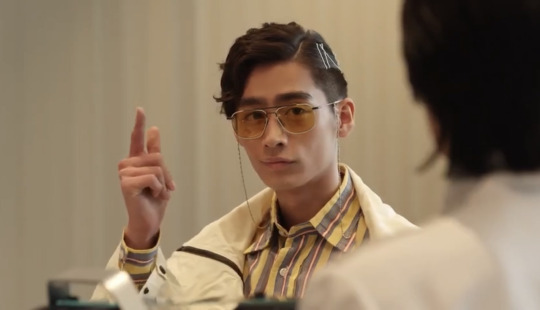
At Daiji’s coronation he cuts off Hiromi and pushes him humorously out of the way, saying he’s ‘taking too long.’ (This is notably also the first episode where we hear mention of his father and/or his father’s scientific legacy.) During the entire attack at the coronation, George is shown to be one of the only people not panicking. He’s rational and level-headed, even warning Hiromi not to try using the vistamp because it would be too strong for him. But then refusing to intervene or do anything more, letting Hiromi go through (and fail) at transforming. Simply stating: “See?” when things go wrong. This—from the standpoint of the audience, is also quite humorous.
George takes on this theatrical jester archetype throughout the entirety of the series, sarcastically commenting on the sidelines as things take place within the central plotline. Like with Hiromi’s failed henshin. In “Fools are Everywhere” Beatrice Otto takes notice that ‘It is the nature of jesters to speak their minds when the mood takes them, regardless of the consequences.” In fiction, and real life, jesters employ a variety of skills. Such as storytelling. In fact, the modern term derives from gestour, or jestour, Anglo-Norman (French) meaning ‘storyteller’ or ‘minstrel.’ (Wikipedia) Jesters have a privilege of mocking/stating the truth to those in power (King) and being able to get away with it. George Karizaki is shown (like in episode 1) to mock, narrate, or comment on a situational folly or irony—again, such as Hiromi’s failed transformation.
There are, of course, other notable instances of George’s jester antics—such as in episode 2, when Hiromi is informed he’s been demoted. Stating: “Your disgraceful failures to protect our Vistamp research labs AND inauguration ceremony have led you here.” So truthful and mean that you, as the audience, can’t help but feel bad and be amused. But instead of ending it there, George puts on that mocking smile of his and says in English, “Don’t mind, Hiromi.”

George, like most jesters, are passive commentators rather than active forces within the narrative. They spectate. In fact, the most active thing George does is create vistamps to be used, which is barely, if ever, shown on screen. Yet somehow George still manages to manipulate and dictate main storyline events. Often working as the catalyst for something to happen in the episode. Such as when he gives Daiji a henshin device, or when he sticks a tracker on something stolen from their base in episode 14/15.
Moving on to his sense of humor, George’s humor is a mix between self-enhancing humor that: “Involves a generally humorous outlook on life, a tendency to be frequently amused by the incongruities of life, and to maintain a humorous perspective even in the face of adversity,” (Like George at the coronation in episode 1), and Aggressive Humor which “relates to the use of sarcasm, teasing, ridicule, derision, ‘put down’ or disparagement humor.” Both are used to enhance the self, and the second is used to enhance the self at the expense of others, specifically.
In Scott Kaufman’s and Aaron Kozbelt’s study, “The Tears of a Clown: Understanding Comedy Writers” they look at these types of humors and found self-enhancing humor to be positively correlated with social support and optimism, suggesting an optimistic outlook on life is closely linked to using humor for coping, perspective taking, and emotional regulation. On the other hand, they found aggressive humor to be positively correlated with self-report measures of hostility and aggression. We have seen George employ both kinds of humor throughout the show. Especially aggressive humor. This shows that George, as a person, is someone who uses comedy to cope and emotionally regulate himself, aka: He builds himself up by taking others down. I stated at the beginning that George uses humor to hide vulnerability, and to give himself a sense of control. As George—though it might not be obvious at first glance—is someone who hates loss of control, as it puts him in a vulnerable position and reminds him of his past trauma, which I’ll get to in a minute.
Above is a video of George putting on his Villain persona in response to Hiromi lashing out at him
Janus states that, “there appears to be an awareness on the part of the audience of the relationship between humor and anxiety. Consequently it would be reasonable to assume some awareness of the fact that comedians are very anxious and often depressed people. (...) Humor, then, can be seen to be especially applicable in situations in which the individual feels himself to be powerless.”
Power, powerlessness, control, and lack of, are all important elements of George Karizaki’s character and the clown mask he uses to cope with his past and his present. In Janus' study on the relationship between humor and anxiety, he found that the early lives of all the subjects were marked by suffering, isolation, and feelings of deprivation; and I quote:
“Humor offered a relief from their sufferings and a defense against inescapable panic and anxiety. The presence of these same needs and ears almost universally accounts for the success of these particular individuals as humorists. The fact that humor is a language of protest to mitigate their anxiety and permits them to function. (...) It is felt that comedians are able to convert their rage from physical to verbal assault and that for many their comic routines are a form of acting out. (...) They (comedians) are keenly sensitive people who have an uncanny perception of the needs and fears of their audience.”
Losing his father at such a young age and with no information about a mother, other than the mention of her not being around/gone, I think it is safe to assume George grew up an orphan without parental role models in his life. But not having parents is not George’s only trauma.
(And here’s where my take becomes hot ….lol)
George was forcibly given his father’s inner-demon as a child. This is obviously a metaphor for the passing down of generational trauma. It is also a form of child abuse. If we examine the facts, which are: (1) the father inserted his demon into George’s body without his consent, (2) this hereby violates George’s sense of self/his bodily autonomy, (3) as stated above, it’s child abuse. You don’t use a kid as an experiment and violate his control over his own body and not have that qualify as child abuse. George had to have been about 4-5 years of age at the time. That’s messed up. Though he might not recognize it subconsciously, this is another reason George hates lacking control.

He’s already had things taken from him (i.e his parents) and things done to him (inner demon) all outside of his control. Then he had to grow up in that environment of deprivation and abandonment, where all he had left was his father’s inner demon and a legacy to live up to. This is also why Geeorge has the tendency to mask as a villain when confronted/put into an uncomfortable situation. It’s self-protection. “People lash out so that they can reject before they get rejected or abandoned. It is a way for the person to feel more in control, which makes them feel safer.” (‘Why do people lash out’ by Dr. Monocle Borschel) Some people with trauma lash out because they go into fight or flight mode when they feel threatened.
To George—being vulnerable is putting himself out to be exploited. So he masks behind aggressive humor and villainy instead.
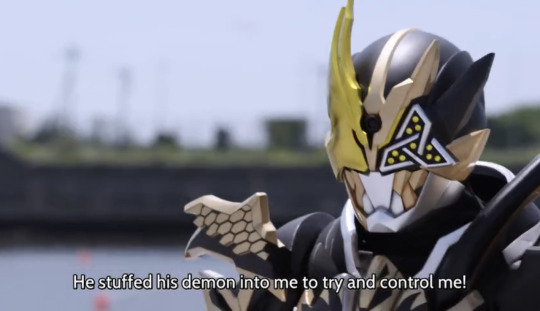
Now, onto George Karizaki’s dilemma.
One of the ways the George inner-demon reveal can be read (aka the way I read it) is as a metaphor for CSA. (Child Sexual Abuse.) How the scene is shown, the translation, and the fact that George’s bodily autonomy is being violated by his father, is why I came to this conclusion. This would also further explain George’s unusual sexual-coded interest in older men/father figures/authority figures. Victims can seek out the same type of abusers in order to have “control” over their own situation this time around, ergo “winning.” Though it never quite does work out that way. Either way, basically, if George is flirting/making the advances, then he has the control.
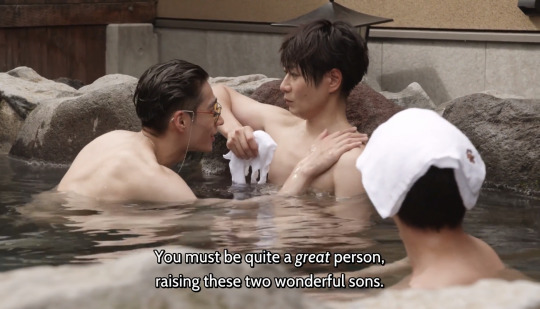
All throughout the show George is usually the one to initiate physical contact with others, not the other way around. And when it is the other way around? George has never once reacted positively, instead forcibly removing the hand/touch from his body.
Of course, this might’ve just been the actor being silly/doing something he finds amusing, for when he does things like flirting with the Igarashi father in episode 8 at the hot springs. But it still shouldn’t be ruled out imo.
One of my first questions at George's inner-demon reveal was: “How does this differentiate from the intergenerational trauma passed down to Ikki from his own father?” Ikki’s situation (mostly with Vail) is often seen as a physically and emotionally abusive relationship. Ikki literally uses himself as a shield to protect his other siblings from his father’s inner demon. Vice, Ikki’s own inner-demon, is modeled after Vail, his father’s demon. Vail caused Vice to be created. I could wax poetic on this forever. But in examination and comparison to George’s situation, I found that the difference was in the actions the fathers took. Genta failed to protect his family from his inner-demon and hurt them, both physically and emotionally. But, George? George’s sense of bodily autonomy is being violated. His father, in fear of losing his son, decides to do something to his body that can never be undone; and he does it in his sleep. All without George knowing or realizing what’s going on.
The entire situation reads to me as CSA.
That’s the difference in the traumas being passed down; because unfortunately, it is a common fact for victims of CSA to become perpetrators of it when they’re older. Once again it’s about revisiting the trauma but from the winner’s side. Which is a disgusting thought process/reasoning, but that is the underlying motive. Now, was his father abused that way? As the audience, we can’t be sure. We know from separate Revice releases that the father, Masumi, worked as a scientist in a position lacking power—but that’s all we really know about his side of the story. The only thing that hints at it being like that is the knowledge of this being an intergenerational trauma being passed down from father to son. Literally, the same inner demon. Plus, the fact that it is being passed down from body to body.
This is George’s essential dilemma—how he should view his father who was a good dad in most aspects up until the inner-demon insertion, and abandonment.
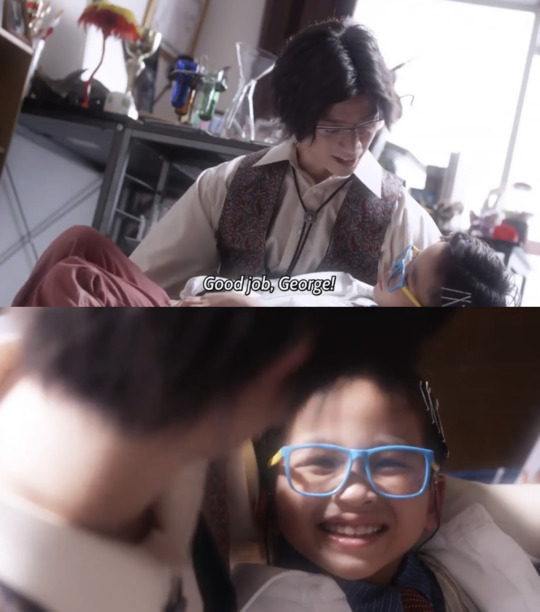
This is why George states that it would be easier to forgive his father if he were really dead.
The entire scenario does nothing but fill George with turmoil. How can he reconcile these two facts? The good and loving memories versus the abandonment and bodily autonomy violation. The bad things should make his father irredeemable, unforgivable, evil. But he was still George’s father. One who gave him a majority of good memories when he was around. The situation here isn’t black or white but a complex gray area.
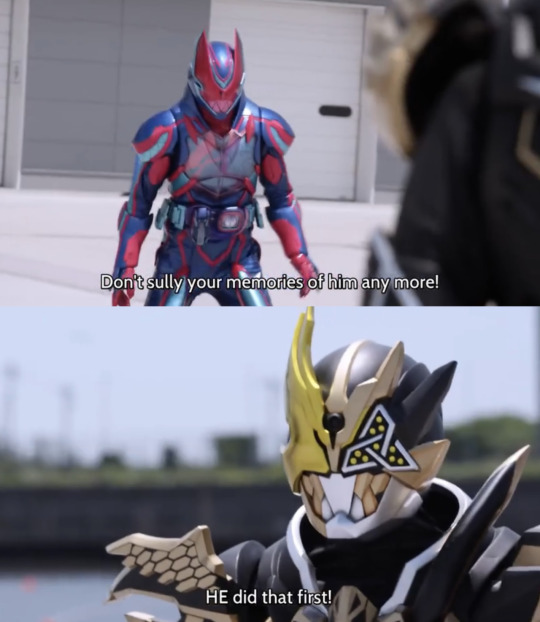
Even Chic, George’s inner demon, shows aspects of this: George and his father’s love for science (good)—but twisted into something ugly, and, humor—George’s way of coping. A perfect mix of the trauma and how it both drives George/causes him to react a certain way (masking, etc.). That’s what Chic represents. A trauma inherited from his father.
So, George Karizaki is a “tragic clown paradox” because of this gray situation he finds himself trapped within. It’s a lose-lose. The jester’s met his match. Humor finally wasn’t enough to mask his pain. So George did the next best thing: he became the villain. (Juuga)

A few things to note now that we’re coming to the end of my essay: (1) this situation reminds me of two other things—Perks of Being a Wallflower (Charlie), and Eliot’s situation in Mr. Robot. In BOTH cases (spoiler) the MC has been a victim of CSA by someone close and very dear to their heart. In Perks it’s by Charlie’s favorite person—his aunt, and in Mr. Robot it’s by Eliot’s father. Both Charlie and Eliot repressed these memories and went on remembering their abusers as people they really loved and who really loved them. Yet, once they remember what happened to them…sh*t hits the fans. Here’s a clip from Perks of the scene where Charlie remembers/finds out what happened:
WARNING: The videos below might be triggering, watch at your own caution.
youtube
Here’s a clip for when Eliot finds out:
youtube
In both, finding out had (obviously) detrimental effects on them. But even before that, their trauma is shown subconsciously. For Eliot, his personality split in order to protect himself. For Charlie, his depression and suicidal ideation. The same can be said for when George finds out. George literally slowly loses his mind, with the catalyst of his father dying adding to previous stress, and instead tries to destroy his father’s legacy by attacking his friends. All so that he can feel more in-control. All so he can feel he has power over his father. So yeah, Charlie and Eliot’s stories reminded me a lot of George’s, which only strengthened my previous assumption of his inner-demon metaphor being about CSA trauma.
Other things to note: (2) George uses touch to manipulate others, often initiating contact when trying to get someone to do something. Such as an arm over shoulder. For George, this can show that to him, touch equals power and control. Especially over others. (3) I think this is one of the reasons why George works out a lot. He worked out enough so that if someone touches him, he can physically remove the touch himself. No more letting others have control over his body without his consent.

#yeah this is triggering#yeah its totally my interpretation of the inner demon reveal#yeah the writers probably didn't mean for it to be interpretated this way#but I did so 🤷🤷🤷🤷🤷🤷#I hope this analysis at least explains my thought process somewhat#I know this is a hot take but its the way my brain saw the scene#and it's been like that ever since#(clown noises)#kamen rider revice#kronthescoup#ikki why is ur demon so cringe#revice analysis#george karizaki#george karizaki analysis#revice#kr revice#revice spoilers
11 notes
·
View notes
Note
✒️ tell me about her kids


SOURCE • @gutterblade & @noxianwill.
I'll start with TALON because he is the odd one out.
Soreana's attitude towards Talon has been mostly neutral. I don't think she's ever been openly hostile towards him barring some passive-aggressiveness. Even that wasn't meant for him but rather Marcus; when he wasn't present, Talon would become the primary target. He was the stray Marcus adopted without her consent and as a replacement for Katarina; that's two strikes against him.
Besides that, Talon remains an outsider who, per Soreana's opinion, never really tried to assimilate into their family. He wasn't acting like a son nor an apprentice but rather something in between—other times he just was, much like furniture. Except furniture ordinarily isn't equipped to kill.
She never trusted him, never considered him as a son. He was too much of a lapdog to earn her respect and too socially inept to be converted into a pawn after Marcus' disappearance. With him gone, Talon's allegiance isn't as strong as she'd like it to be.
She also finds it contemptible that he got to enjoy freedoms her daughters have been denied. None of the duties and all of the pleasures of the highborn lifestyle make for an aimless, ungrateful adoptee, which is what he is to her.
Finally, she still allows him to sleep in their house, presumably in her vicinity, so she's not ready to let go of him. Is it some latent desire to connect spurred on by her own loneliness or a desperate ploy to recruit him for his investigative skills?
KATARINA has always been a handful.
She might've inherited her father's bright locks, but the mercurial temperament is all Soreana. One of the main reasons they couldn't fully connect is they're too much alike. Granted, Soreana mellowed with age and with the help of her education. She would've liked the same for Katarina, she just wasn't receptive. To this day she regrets having not forced her into it even if she did blossom under her father's tutelage.
Not only does Katarina remind her of her young uneducated self; she also spurs on feelings Soreana believed she had abandoned long ago. Family members and housekeepers alike can confirm no one could make Soreana go red in the face like her own daughter could. A woman who thought she had risen above her own weakness undone so easily by something so trivial as a child's outburst. Oft times she would look back on their arguments and feel embarrassed. What would you do?
Soreana avoided her, said her place was by Marcus' side given her listlessness and talent for acrobatics; both being Soreana's inheritance. It was a mistake on her part as it yawned a rift between them. Had she looked to their similarities as strengths and used them to build rapport, their relationship would've been the closest out of all of the children.
As with most firstborn children, Katarina marked many firsts. They could've done better by her. Soreana is too arrogant to admit this. She is also too arrogant to admit she is very proud of Katarina. She is a self-made woman for the most part even if she is playing for the wrong team. Soreana wanted to play a part in both of her children's achievements, partially because that would have bred a sense of gratitude, of indebtedness towards her that could be used later—alas.
There may be a point when she will be made to face the same dilemma again. At this point, I think she would choose differently.
For CASSIOPEIA, I wrote a little in-character thing once.
Cassiopeia is the favorite. She was closest to her mother, they spent a great deal of time together, and most prominently, she cared for her when she was ailing. There's something to be said about the people who remain at your side when you are at your most vulnerable. It's easy to idealize them, to regard them as saints or as your personal saviors.
To her, she was faultless. The perfect child. This is one of the reasons her disappearance hit her harder than Marcus'. She was simultaneously her savior, her apprentice, her victim, and her little girl. That's too many roles to tack onto anyone. Given time, Cassiopeia might've been able to use this to her advantage.
From Soreana's perspective, she is solely to blame for what happened to her. She should've prepared her better, should've foreseen the ill that befell her in that tomb. It was supposed to be Cassiopeia's test but if a pupil so bright failed it then the blame falls on the tutor.
Were she to find her in her current state, she would support her in any way she could. Soreana is actively searching for her, too stubborn to give her up. If she is successful, she will consider it as her redemption from both Cassiopeia and Marcus' loss.
#》. answered#》. ask prompts#》. dynamics#gutterblade#noxianwill#thank you both for providing me w the opportunity to rant abt this family 💖#long post
7 notes
·
View notes
Text
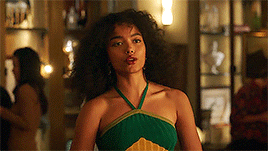
the holiday season was in full swing, with festive decorations adorning every corner and the air filled with the scent of pine and cinnamon. amidst the merriment, aubrey found themselves facing a dilemma that threatened to dampen the cheerful atmosphere — an impending family gathering. she had always been a private person, preferring to keep the details of their personal life away from the prying eyes and well-intentioned inquiries of relatives. yet, as christmas approached, the pressure to appear with a significant other at the family festivities intensified. the questions about her love life became more persistent, and the idea of spending the holidays as the perennial single cousin weighed heavily on their mind. in a moment of desperation and vulnerability, she reached out to someone they believed could help alleviate the impending social scrutiny. the request was hesitant, veiled in a fragile smile and an attempt at nonchalance. "hey, um, i know this is a bit out of the blue, but i was wondering if you might consider being my fake date for christmas? my family is...- well, they mean well, but they've been on my case about being single for a while now, and i just thought maybe if i showed up with someone, they'd back off a bit. it's just for show, and I totally understand if you're not comfortable with it. i just... - i really don't want to deal with the whole 'still single' interrogation this year. what do you think?" / @cloudyangcls
2 notes
·
View notes
Note
Hi!;)
Do you remember the “Hero, do you have limits?” question? Well, it was me! I don’t understand Hero, (but he is really interesting, and basically a living meme.) in my opinion, he is very ambiguous (And I LOVE it, it’s not a flaw at all!).
Now, “But even if Villain were a woman”…
If Ethan had been a woman, would Chris have done the same things? (You know, gender roles, toxic masculinity, blah, blah, he doesn’t seem to me a very morally independent person…)
What an interesting question!
CW: Female whumpee, mention of non-con/sexual content, sexism (ish), manipulation, implied minor whumpee, toxic masculinity and gender roles.
If Villain had been Villainess, Hero would have made some public comments about how "conflicted" he was on fighting a woman. He might have even gone easy on her a couple times. However, this has nothing to do with any ethical dilemma, and everything to do with his public perception.
Once she got captured, the main story beats would have been the same. Any "issue" about hitting a woman would vanish.
Now that I'm thinking about it, Sidekick would actually go through more change in this AU than Hero. He's certainly adapted into this toxic mindset of "boys/men don't cry" (thanks for that, Hero), and seeing Villainess cry would cause him less distress than in the original story. She's "allowed" to cry. On the flip side, I think he would soften up quicker to her. He would be the type to genuinely object to hitting a woman, unless she was attacking you first. So he'd sooner cross his tipping point of realizing what he and Hero are doing is wrong.
That's not to say Hero would be unaffected by this change. There would have been a couple details different:
- He would have made comments about her appearance, once the captivity started to show. That particular method of breaking self esteem didn't occur to him in the original storyline: since he wasn't attracted to Villain, in his eyes there was nothing "lost".
- I think that while his dialogue wouldn't change that much, the tone might be more faux-affectionate. Using petnames, belittling her, almost pretending to have pity. Those things would happen more often.
- He wouldn't have send Sidekick down there to clean her up. He was telling the truth in his answer to your question: he wouldn't do anything sexually inappropriate. And sending a teenage boy to clean an adult woman would feel icky to him. He wouldn't be gentle or anywhere near patient with Villainess while he cleaned her himself, but there's line he won't cross.
Well, one sidenote about that, actually.
There's a hint of an inflated ego in that one standard he has: in his eyes, if you can't get someone in your bed of their own accord, then that just means you're not very good at it. For him, people who commit sexually explicit crimes are basically confessing they can't get anyone to like them consensually, and he thinks very lowly of those people.
I've been thinking about how Hero would view women. We've seen what he was willing to do to Amy in the flashback. I hesitate to call him sexist, for one simple reason: yes he sees every woman as a means to an end. But he sees everyone that way.
As you can imagine, his relationships usually didn't last very long. Either he got bored, or she realized how he truly saw her.
The closest he can get to being fond of someone, is enjoying the role they fullfil to him. Jackson was good at accepting Chris's manipulation, and he was socially vulnerable, so Chris enjoyed his company. It was the closest Hero/Chris has gotten to having a friend.
Sidekick is also easily manipulated (due to being a minor and in Hero's care), so now and then Hero will feel a spark of fondness. Not really parental, more the way you like your favorite mug.
#this turned into a hero meta-analysis halfway through but i hope i answered your question#behind the masks#my stuff#hero#my writing#genderbend AU#manipulation cw#female whumpee#toxic masculinity#it sometimes feels like these characters are living in my brain#and i love poking hero with a stick and trying to figure out what exactly is wrong with him#what a horrid little man he is.#(and if im gonna be honesf ive wondered in the past whether i made him too stereotypical..)#(like I'm not the only writer on here with a manipulative sadistic whumper y'know?)#('remember the two cakes comic!' yeah i know but it's still nice to know that Hero is interesting to other people too)#(ANYWAY im ranting and ive praddled on long enough haha)
20 notes
·
View notes
Text
Are you ready to hear the truth? We are no longer a United Kingdom.
We have shown our deep respect for a dignified old lady but the era ended with her last breath. Ostentatious mourning pageantry and tax payers money lavished on the Queen’s funeral are excessive and frankly offensive to many when 1 in 3 children in the UK are now in poverty and people working full time are using food banks. Many of our most vulnerable face the dilemma of heating or eating this winter. It serves only to highlight the social divide and injustice in our society.
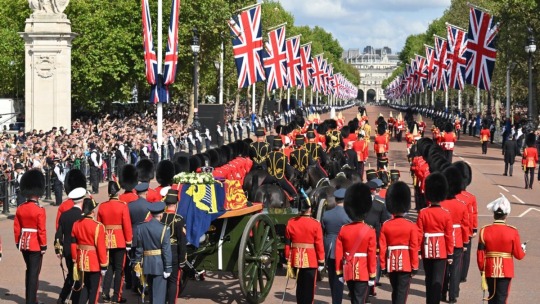
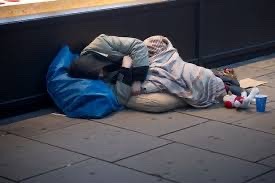
Elizabeth’s son and the other royals do not command our loyalty. The displays of grandeur and superiority are designed to remind us how “Great” we are, but deep down we know that the royal family are no better than us, and we are no better than the rest of the world. The fairytale has ended, we’re left with an adulterous unprincipled man-child heir, an equally adulterous consort, a paedophile Prince, scandals, lies, corruption, bullying, elitism and racism. No different to the past perhaps, but in this modern age, no facade of pretence to hide it from the public.

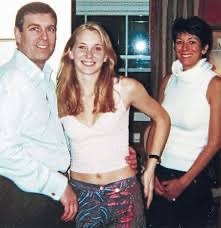


Our final tie is severed. The last vestiges of the benevolent, virtuous face of Britannia gone. Wales is stirring and unfurling it’s wings, Northern Ireland is reaching an historic tipping point, waking up from the spell cast by Westminster. Divide, nurture hate, court and fund the opposition, infiltrate and incite until the hate is so strong that only time and a greater hate and desperation can heal the division. Which it will. United Ireland is on the near horizon. England itself is hearing growing cries for independence from the union and a confederation of regions rather than London rule. Because people KNOW that’s where the poison oozes from.




You, yourself, are seeing the mask slip now. Scotland saw the ugly face beneath long ago. Not because we think we’re cleverer or more astute, but because there was little attempt to hide it from us. We were downtrodden, conquered and insignificant. Our shame. In 2014 we were fooled, showered with love and empty promises. Confident, superior voices warning us “for our own good” of what we would lose. That made us doubt what we never really wanted to believe was true in the first place. We took the blue pill. Then we lost all of it and more anyway, and we deserved to. We weren’t strong enough to stand alone. So easily convinced, subconsciously wanting to believe that they’d admitted their mistakes, would change *this time* and it would never happen again. We were reeled in and discarded once more, in the confidence that we’d been suppressed for at least another decade or so.
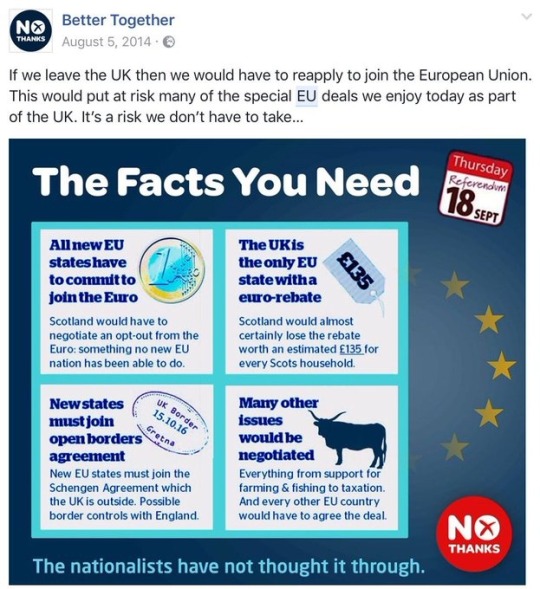
The death of the Queen is so poignant for everyone in the UK, because we are not just grieving the lady herself, but the imaginary kingdom we allowed ourselves to believe she represented. The apprehension being felt is the recognition that the wind of change is blowing our way, for good or ill. Many may not want to face the upheaval of setting out into the unknown, but much like the death throes of a dysfunctional marriage, it’s inevitable and denial won’t stop the wheels coming off. We’ve dragged it out to the almost the bitter end “just in case” something miraculously changes. It’s so much easier just to stick with what we know. Until it isn’t. But maybe a new PM? Red on the outside, blue on the inside. A plant. The illusion of choice, of free will and democracy. We become accustomed to the horrors, they seem normal. It’s all become too big, too much, too insurmountable.
We don’t know how to begin to fix it, there are too many holes to plug, too many fires to fight. We hope someone else will sort it all out for us. But only with collective will can it be fixed. And it can’t really BE fixed per se. A reshuffle in parliament won’t cut it. Plastering over the cracks isn’t going to solve the root cause. We have to start again. It’s do or die. We revolt or we allow everything to be taken from us and from future generations. The government is broken. They are now just clinging to power long enough to plunder the UK and funnel as much of our wealth and resources offshore as they can.
Underfunding the NHS to the point where private health is the only option left to us, then selling it off at a loss to be bought by U.S. conglomerates to sell back to us, for profit, a pale imitation of what we once took for granted. Lawless, unregulated Charter Cities with boundaries encompassing our national parks, rich with gas and lithium deposits - once the ink is dry, they’re all but untouchable by future governments. A perpetual equity release scheme taken out on our property, undercutting industry in the rest of the UK and to which the only defence is to make MORE charter cities. Until the whole country is made up of charter cities with just wasteland in between. Fracking licenses to smash and grab the gas no matter the devastation done to our environment. Drilling licenses to squeeze every last drop of oil and gas from our waters, regardless of the climate damage. Raw sewage in our rivers and on our beaches. Money disappeared into pockets for contracts that were never going to be fulfilled. Uncapping banker bonuses to speed the drain of wealth from our economy, hand outs to foreign owned energy companies with UK government shareholders, clawing back workers rights, paid holidays, sick leave, state pensions. Removing any avenues of legal recourse for their actions and even the right to protest about them. Abolishing the unions, taking away the power of our collective voice. Cutting us off from higher international authorities who could intervene. Monopoly and suppression of the media to cover up what’s happening and frenzied attempts to distract us with scandals, gossip, refugees, faraway wars, the “enemy” who’s against us this week, to avoid scrutiny of the government here at home.
The liquidators have moved in, stripping anything of value before walking away from the shell left behind, safe in the knowledge that their fortunes are safe in numbered accounts in tax havens. Reducing the working class, the free thinkers and the rebels to poverty and apathy as we’re too anxious about how our families will manage to get by to actually DO anything. Finances too precarious to take any risks. Surreptitiously destroying us from the inside whilst we’re in manufactured mass hysteria about Harry and Meghan holding hands, immigrants stealing our jobs, energy prices and the cost of Lurpak.
Meanwhile, the UK is dying. Scotland is not England’s enemy. Wales is not England’s enemy, Ireland is not England’s enemy, Europe is not England’s enemy. The British state is everyone’s enemy. It has no power of it’s own, only the power we, the separate nations of the UK, give to it. So let’s just stop. Let’s break the chains. Let’s reimagine our collective future and the legacy we leave to future generations.
How? Give Scotland your support for our independence, wherever you live in the UK. We’ll forge the way and take the initial risk. Because it’s no risk at all, no matter what they’d have you believe. Speak out for Scottish independence, sign online petitions to the government demanding a referendum for Scotland. Share tweets on independence. England, join an English Independence Party/movement. Others will do the same, it’s the next logical step as the rest of the UK contemplates it’s future without Scotland. After a quick scroll through their profile, @EnglishUDI look pretty sane. (*Do your own research disclaimer). I also had a look at the Breakthrough Party manifesto @BThroughParty which alongside many excellent socialist policies, also supports the rights of the separate nations to choose independence. Have a look for yourself and join if their policies align with your political values. Remember that even if you don’t agree with the manifesto 100%, joining a party in its stage of growth gives you a louder voice to help shape the party. Lobby your MPs. Build momentum and Scotland will back you to the hilt. England can finally demand a government of it’s own and decentralise power from London by having a confederation of regions. Make it much harder for fascism to get a foothold again by spreading the power out so it’s no longer hoarded in Westminster. Rebuild your regional industries, breathe life back into the neglected towns and cities. Fund your local schools, hospital, councils. Regions run by the people who live there, for the people who live there. Let’s all give Wales the support to follow when they’re ready. By this time, Ireland will be united, get behind them too. Between us, this is achievable. Working together as partners, not pawns in an imperialist game. Take the red pill.
#scottish independence#English independence#freecymru#united ireland#the state of the union#abolish the monarchy#not my king#fuck the tories#rejoin#prince harry#meghan markle#fuck brexit
52 notes
·
View notes
Text
A second subjective list of favorite danmei's I read in 2022
I Can Do It :: 我行让我来[电竞] 酱子贝
This Prince has Something To Say :: 孤有话说 楚寒衣青
The Legitimate Son’s Dilemmas :: 嫡子为难 石头与水
Woke up and Heard I Was Married :: 一觉醒来听说我结婚了 木瓜黄
After Dawn :: 黎明之后 冰块儿
Heart Eyes :: 心眼 北南
Cherish :: 钟情 静水边
Floating Dreams :: 浮生梦 白芥子
PUBG Online Romance of the Century :: PUBG世纪网恋 酱子贝
I Ship My Adversary X Me :: 我嗑了对家X我的CP PEPA
Compared to my other list, this list contains some lesser-known titles and titles I read later in the year. They had something about them that made me start reading and not wanting to put them down.
I know it’s March but I swear I started this list back when I could reasonably hope to publish it before Chinese New Year, then Lantern Festival, and um…
I Can Do It :: 我行让我来[电竞] 酱子贝 – [Esports] I had to look up quite a bit of LOL references for this novel, but it says something about its quality that made me want to do the research! The story follows Jian Rong, a mouthy LOL live-streamer who gets recruited into his idol’s professional team. For me, it combines the comedy of having a snarky troll protagonist with the passionate energy of Esports. The Gong is around five years older than the shou, who turns 18 just before they start a relationship; but the sense of the age gap is quite strong between them. The key source of angst in this novel is the stress of injury and retirement for the more mature players, but the story’s keeps a mostly positive and upbeat focus is Jian Rong’s growth in professional gaming (and his cool, handsome boyfriend).
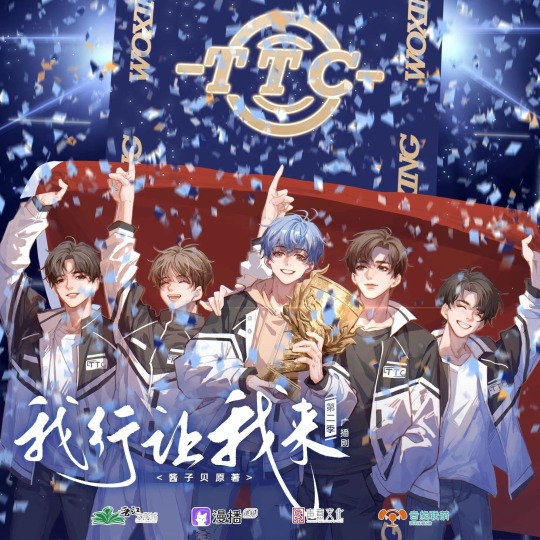

This Prince has Something To Say :: 孤有话说 楚寒衣青 - [NOT TRANSLATED] [historical, political, wuxia] – This novel is split down the middle across two genres. The first part is a political intrigue in which the crown prince Xiao Jianshen (gong) tries to consolidate power in a (hilariously) hectic imperial court, while the second part is a wuxia tale in which a sect master Fu Tinghuan (shou) sorts out his old jianghu rivalries. They cross into each other’s worlds for their own objectives, but also fall in love. Fu Tinghuan’s vulnerabilities in love are heart wrenching, especially considering his backstory. Xiao Jianshen reads like he is on the ace spectrum; his love seems a lot more reserved in comparison, but from his POV he is as devoted to Fu Tinghuan as he possibly could be and isn't attracted to anyone else. The novel is also focused on the Gong’s POV, which is typical for this author.
The Legitimate Son’s Dilemmas :: 嫡子为难 石头与水 – [NOT TRANSLATED] [historical, transmigration, “household drama” aka 宅斗] – Though this story is technically a danmei, only 2% of the text is relevant to romance. It isn’t even a true HE (Maybe OE? It’s HE in the sequel), and it’s realistically cynical in that both the protagonist and love interest marry (and consummates their marriages with) multiple women. Protagonist Feng Mingzhan is in a very awkward position as the sole legitimate “di” Son of the Emperor’s brother, but seemingly born mute so unsuitable to inherit his father’s title. To appease the Emperor, Mingzhan’s father sends him to the capital as a political hostage. This enrages Mingzhan (who is actually a transmigrator) and prompts him to seriously compete to become the heir with his more favored half-brothers. The political maneuvering is fun enough to keep me going, and it’s also an interesting examination in the kind of familial relationships and dynamics that can be formed (and destroyed or rebuilt) under such a social context. But honestly don’t read this for the romance.
Woke up and Heard I Was Married :: 一觉醒来听说我结婚了 木瓜黄 – [celebrities/actors, system, mystery] – This is a story in which the main characters are celebrity actors, but they are actually solving mysteries, mostly at the direction of a system inside the protagonist that doesn’t do much of anything else. The protagonist is smart but lazy, appears very uninterested in the world around him, but wouldn’t shy away from doing the right thing when it counts. His older love interest is doting and suave, (and light spoiler: also rich enough to buy them out of most problems). Despite its lighthearted tone and premise, the “cases” veers into surprisingly deep and dark themes like homophobia, cyber-bullying, and the human cost of such cruelties. I generally like mysteries and procedural novels, but I never thought I could somehow enjoy them with an entertainment-industry context, which gives such themes a much-needed touch of lightness.

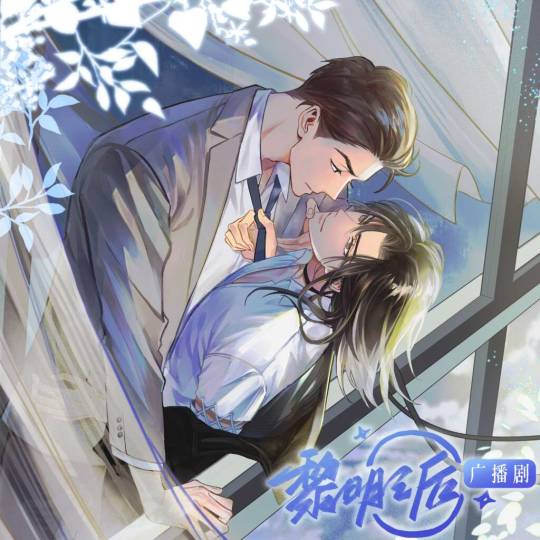
After Dawn :: 黎明之后 冰块儿 –[celebrities, reconciliation, rival families] – This story looks like it’s trying to max out dog blood tropes that can be fit into one novel: there’s misunderstandings, a returning ex, ‘indecent proposals’, framed for a crime, inter-family rivalry, a sex tape, bastard sons competing for recognition and wealth, (quite a few very steamy scenes,) and so on … but fundamentally it’s two people meeting again after years, and reconciling after several rounds of misunderstandings. It’s very angsty in the process, but rationally you just really just want to grab and shake these two characters because they keep on saying just enough of the wrong things to make their misunderstanding worse. Perfect read for when you want to take your heart on a ride with good old-fashioned melodrama, and perfect demo for how NOT to communicate in a relationship.
Heart Eyes :: 心眼 北南 – [NOT TRANSLATED][reconciliation, (eventual) step brothers, hurt/comfort, slice-of-life ] Liang Cheng enters Qiao Yuanlin’s life three times, as a stranger who saves his life during a cardiac event when he was 13, as a mysterious tenant living in his grandmother’s extra room when he was 16, and as his step-mother’s son six years later. However, there is another hidden thread connecting their histories together. In many ways, this is a coming-of-age story for Qiao Yuanlin, who is born with a serious congenital heart defect that has permeated every aspect of his life. Still, he manages a very realistic blend of good nature, naivete, and bratty-ness as he moves through adolescence and young adulthood, and together with Liang Cheng, learn to confront and move beyond the hard patches in their histories towards something better. It also has the most satisfying hurt-comfort-recovery arc I have ever read thanks to Qiao Yuanlin's heart.


Cherish :: 钟情 静水边 – [NOT TRANSLATED][guides and sentinels, sci-fi, space opera] – In a interstellar society with Sentinels and Guides, a weak Guide who doesn’t even have a familiar accidentally encounters and hits it off with the the most powerful Sentinel in the world, the Emperor, and is then pulled into the schemes in elite politics. I really enjoyed the novel for it’s fast pacing, because it’s not often that I find myself really drawn into a novel halfway into the first chapter. I feel like it leaves much to be desired as a sci-fi because it only very, very superficially address the social and political implications of the setting (and events of the plot). However, the story is a very fun ride, and is full of funny details like the Emperor’s familiar being a dragon with the “heart of a teenage girl” who would like pink rhinestones on EVERYTHING, thank you very much.
Floating Dream :: 浮生梦 白芥子 – [NOT TRANSLATED][historical, political intrigue, mpreg, meta] – It’s kind of cheating to put this one here, since this is an AU the author created for her two other stories in a shared universe. The premise is that men can carry children if they take a special potion. In the first story, Crown Prince Zhu Yunjing is framed for a crime, deposed and sentenced to death. He escapes the capital with the father of his unborn child, and builds a life with the man whom he once thought of as a rival and one night stand. In the second story, his younger brother Fifth Prince Zhu Yunxuan becomes the emperor by making a deal with a powerful court official, and their tenuous relationship deteriorates rapidly as he takes the throne as their power dynamics grow more complex. In this AU, the Crown Prince manages to save himself from being deposed; his own situation becomes less desperate, and he is also able to stick around and look out for his little brother, who doesn't need to end up in complicated political bargains. In the net, everyone seems to have it a easier in this version of events, though the Crown Prince’s love interest needing to wait longer for the prince to work out his feelings, and their lively and mischievous son needs to learn to turn down his nature since he is now the crown prince.
PUBG Online Romance of the Century :: PUBG世纪网恋 酱子贝-- [online gaming, live-streaming, past trauma] – Conglomerate CEO Yi Chen accidentally becomes the first viewer of Yu Yan, a new PUBG live-streamer on his platform. As Yu Yan navigates this new career to pull himself up from lackluster living conditions, he takes generous viewer and noob player “Yi” under his wing in the game as a part of his streams, unaware that this is the platform CEO “learning about his business”. Out of the four gaming-themed novels I read from this author, this is by far the least lighthearted and most involved with game play, though thankfully Yi Chen is also a new player that needed noob-friendly “tutorials” from Yu Yan. While the premise sets up a struggling protagonist and a rich love interest, Yu Yan still forges his own path, moves on from his trauma and flourishes on his own terms, while Yi Chen has his own baggage to resolve. The ending is happy but more hopeful, and leaves you feeling like these characters will grow into better and happier people.
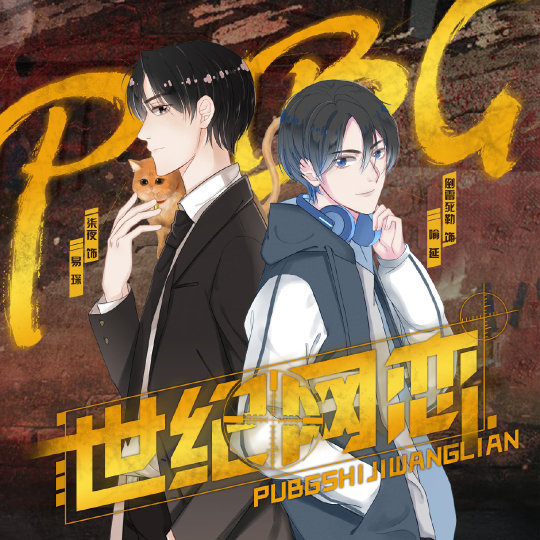

I Ship My Adversary X Me :: 我嗑了对家X我的CP PEPA – [idols and celebrities, humor, fandoms] A hilarious story in which C-list idol actor Wei Yanzi stumbles into the fandom of his ship with his rumored adversary, B-list actor Gu Yiliang. When the shippers are the only ones imagining their idol as a loving and loved little angel, Yanyan decides to join them and actively produce “candies” to feed their content. Gu Yiliang ends up with some very confusing signals from his co-worker but chooses the “generous” approach, and somehow this ends up as an epic loves story. This story is written in a brisk style, first person pov, full of internet and meme references, but if you can handle the style it will be a fast-paced funny read. Things that would hint at major angst in other works ends up being a laugh that gets breezed through. If you ever liked idols, this work will be a blast regardless of you are a solo or CP fan.
#danmei novels#danmei faves#icdi#pubgoroc#gyhs#嫡子为难#yjxl#黎明之后#心眼#钟情#浮生梦#PUBG世纪网恋#cpme#我嗑了对家X我的CP#一觉醒来听说我结婚了#my reading
12 notes
·
View notes
Text
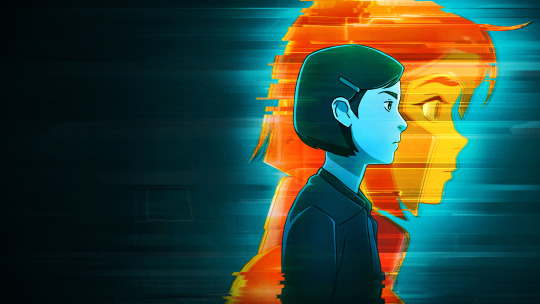
Pantheon: a review
I finished watching Pantheon. I have mixed feelings about it. Some of it made me laugh (evil Steve Jobs as the villain, knock-off Motoko Kusanagi and other Ghost in the Shell references). Some of it had issues.
I'll start with the good. The premise is that people can be permanently uploaded into a virtual space. An uploaded person is called a UI (Uploaded Intelligence). They are vulnerable to the same things as any data is; they can be deleted, they can be attacked by viruses, they need beefy data centers, etc. But also, they have digital superpowers to be anywhere a network can reach and hack anything and everything. It was all developed by big tech companies hoping to enslave their best employees into UIs so they can keep working forever, and quickly extends to militaries using UI operatives. The whole thing has intense "don't invent the torment nexus" vibes.
The main characters are teenagers who speed-run a series of well-known moral dilemmas and philosophical conundrums. For example, is a UI still human? If a single UI is to have control over the rest with god-like powers, how do you choose the right one? How do you balance the rights of UIs and embodied humans? And there is also geopolitics, corporate scheming, and people with their own agendas.
The show totally nailed techbro idol worship (Evil Steve Jobs) and software tech culture in general. What transpires in the show seems like Elon Musk's wet dream of "extending the reach of human consciousness" or whatever, in a fantasy world where his employees actually like him and he is a uniquely talented engineer instead of an idiot, and of course in the scenario where he wins instead of those meddling kids.
Most of the core cast are programmers, with a quant thrown in the mix as well. There are two humanities/arts characters featured as spouses. Despite having diversity in ethnic backgrounds, there is almost no diversity of life experience. Nearly everyone is in a tech social circle. I am not saying this as a criticism, as it makes sense for the story.
Now for the things I didn't like.
The animation felt lifeless and I struggled to watch with my full attention. I mostly watched it while doing chores or sewing. It was easy to follow even while doing other things. I've seen plenty of Japanese anime where they take lots of animation shortcuts and everyone looks lively, so I don't know what went wrong here.
The voice acting was good for the main cast, but many of the side and minor characters were terrible. They sounded like actors doing voices for a kids show. We had Israeli characters with French accents, siblings with wildly different accents, random foreign accents. Like what was going on??? Was it the same four actors doing every side character's voice like in Skyrim?? Did they just guess what accent they should use without looking it up?
There were also numerous stereotypes that felt totally out of place in a modern show. There was the unpopular overweight girl who did everyone's homework for money and was always shown eating. The mother of the main character was extremely bitchy in season 1 and felt like every bitchy TV mother I've seen before. In Norway, everyone only eats salmon??
Out of the characters, I liked Caspian, MIST, Lori, and David, and maybe Chanda, but I found most of the others unlikeable or inconsistent. Maddie and Ellen both undergo jarring changes of behaviour that make little sense in the story's context, such as being very open-minded and then suddenly not, and vice-versa. Waxman was kind of a piece of shit with a friendly face. Maybe I'm missing something, but Pope's motivation in season 2 was totally unexplained and made no sense at all.
Letting go of the human form is a feature of being a UI and this is emphasized numerous times throughout the show, yet most UIs seem to choose human or humanoid forms. Lori was one of the few who regularly ditched her human form unless she was interacting with humans. The fight scenes could've been way more interesting, but mostly they were just blasting each other with fake plasma projectiles or whatever.
Finally (and I know I shouldn't do this), let's take a look at the feasibility of uploading people en masse. The techbros claim that uploading everyone and maintaining them as digital beings is easier on the environment than having billions of embodied humans. It's shown early in the show that a UI needs a massive data center to run at full capacity. We know what it takes to increase computing power: energy, minerals, rare earths, etc. Crypto mining uses insane amounts of energy, and LLMs and other AI tools use tons of energy as well. On the other hand, it's totally in line with the techbro mentality that infinitely energy-efficient hardware and clean energy will magically solve everything so they can profit forever. They simply do not understand the laws of thermodynamics.
Another thing that bothered me was that the UIs were not decentralised. It's possible to pinpoint their location on a network, which makes no sense if they are based in physical data centers.
The show is definitely worth watching if you are into cyberpunk and near-future sci-fi. It's based on short stories by Ken Liu, who has won Hugo and Nebula awards. I'm very curious to read them now and compare with the show.
Overall, the concept and plot were super interesting. The areas it fell down on are probably not deal-breakers for most viewers, though I really wish they would've done better on the stereotypes.
2 notes
·
View notes